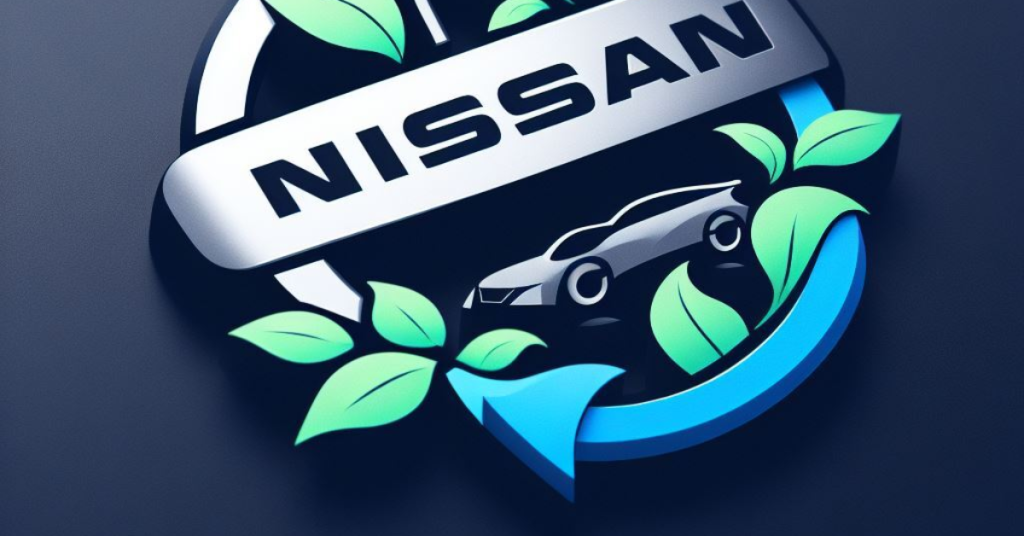
Ah, the joys of car ownership. It’s like having a high-maintenance pet that guzzles gas and demands regular check-ups. But fear not, my fellow Nissan enthusiasts! Today, I’m here to guide you through the essential maintenance tasks that will keep your beloved ride purring like a kitten.
Mastering the Art of Oil Changes
Let’s start with the lifeblood of your Nissan – the engine oil. Now, I know what you’re thinking: “But I have a 2019 Altima, and the dealership always tries to rip me off with their oil change recommendations!” Well, fear not, my friend. The key is to listen to your car, not the greedy gearheads at the dealership.
As a general rule, you should be changing your oil every 3,000 to 5,000 miles, or every 3 to 6 months, whichever comes first. But don’t just take my word for it – consult your Nissan owner’s manual to find the exact recommendations for your model. And when it comes to the oil type, stick to what the manufacturer suggests – no need to get all fancy with the latest snake oil supplements.
Tires: The Unsung Heroes of Your Nissan
Now, I know what you’re thinking: “Tires? Really? That’s just air in a rubber circle, right?” Wrong, my friend. Those four little contact patches are the only thing between your Nissan and the open road, and they deserve some serious attention.
First and foremost, check your tire pressure every month, and before any long road trips. Bridgestone recommends keeping your tires inflated to the optimal pressure listed in your owner’s manual. And don’t forget to check that spare tire – you never know when you’ll need it.
But that’s not all. Rotating your tires every 5,000 to 8,000 miles will help them wear evenly, extending their lifespan and ensuring a smooth, comfortable ride. And if you notice any unusual tread wear patterns, it might be time to have your alignment checked. Trust me, your tires will thank you.
Keeping Your Nissan’s Fluids in Tip-Top Shape
Alright, let’s move on to the other fluids that keep your Nissan running like a well-oiled machine. First up, the coolant. This vital liquid is responsible for keeping your engine from turning into a molten lump of metal, so it’s important to check the levels and have it flushed according to your owner’s manual.
And let’s not forget about that mysterious transmission fluid. Depending on your Nissan’s transmission type, you may need to have it checked and changed at regular intervals. Again, consult your owner’s manual for the proper maintenance schedule.
Lights, Camera, Action!
You know what they say: “Bright lights, big city.” And when it comes to your Nissan, those bright lights are essential for your safety and the safety of others on the road. Take a few minutes each month to walk around your car and check that all the lights are working properly – headlights, taillights, turn signals, the whole shebang.
And while you’re at it, don’t forget about those unsung heroes, the windshield wipers. Bridgestone recommends replacing them every year or whenever they start to lose their effectiveness. Trust me, you don’t want to be caught in a downpour with worn-out wipers.
Keeping Your Nissan’s Heart Healthy
Now, let’s talk about the heart of your Nissan – the battery. This little guy is responsible for starting your car and powering all those fancy electronic gizmos, so it’s important to keep it in tip-top shape. Bridgestone suggests having your battery tested regularly, especially during the extreme temperatures of winter and summer.
And while we’re on the subject of electrical components, don’t forget about those spark plugs. Over time, they can start to wear down, which can lead to a loss of power and decreased fuel efficiency. So be sure to have them checked and replaced according to your Nissan’s maintenance schedule.
Tackling Seasonal Challenges
Now, let’s talk about those pesky seasonal maintenance tasks. In the winter, it’s a good idea to switch to winter tires for improved traction and handling on snow and ice. And don’t forget to check your antifreeze levels to make sure your engine doesn’t turn into a frozen popsicle.
And in the summer, it’s important to keep an eye on your air conditioning system. A well-functioning A/C can be the difference between a comfortable ride and a sweltering sauna on wheels.
The Importance of Keeping Records
Alright, now that we’ve covered all the essential maintenance tasks, let’s talk about the importance of keeping good records. By diligently recording your Nissan’s maintenance history, you’ll not only ensure that you don’t miss any important tasks, but you’ll also be able to demonstrate to potential buyers that your car has been well-cared for.
Plus, if you ever need to take your Nissan in for a repair, having a detailed maintenance log can help the mechanics diagnose and fix the issue more efficiently. And who knows, it might even save you a few bucks in the long run.
The Takeaway
Owning a Nissan is a true labor of love, but with the right maintenance routine, you can keep your ride running like a dream for years to come. Remember, a little bit of TLC can go a long way, and the more you stay on top of those essential tasks, the less likely you’ll be to encounter any unexpected (and expensive) surprises down the road.
So, what are you waiting for? Grab your owner’s manual, put on your best mechanic’s hat, and let’s get to work keeping your Nissan in tip-top shape. And don’t forget to check out https://nissan2022.com/ for all the latest news and updates on your favorite Nissan models. Happy driving, my friends!






